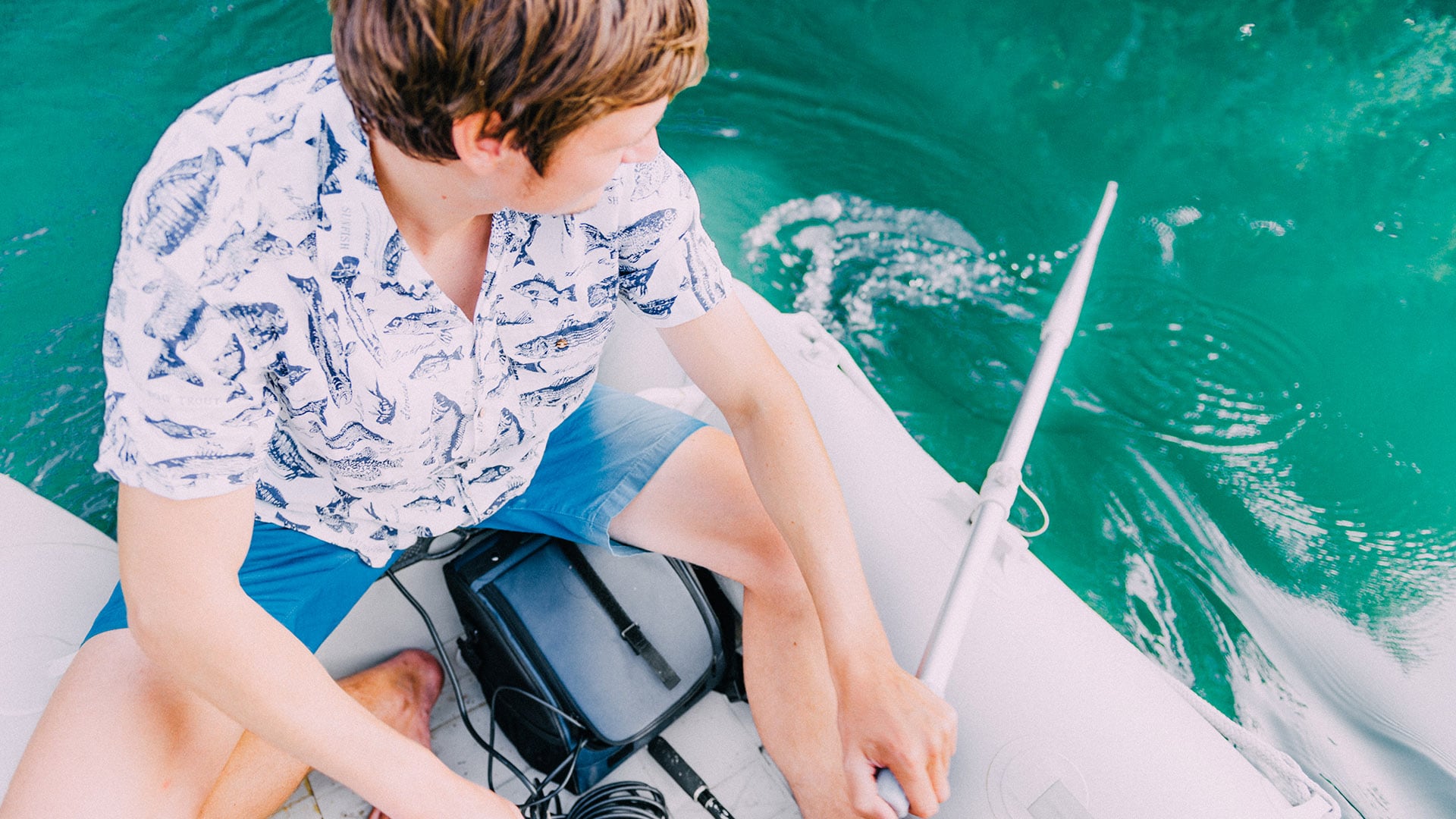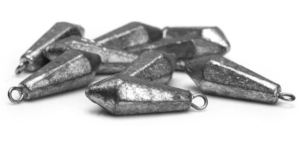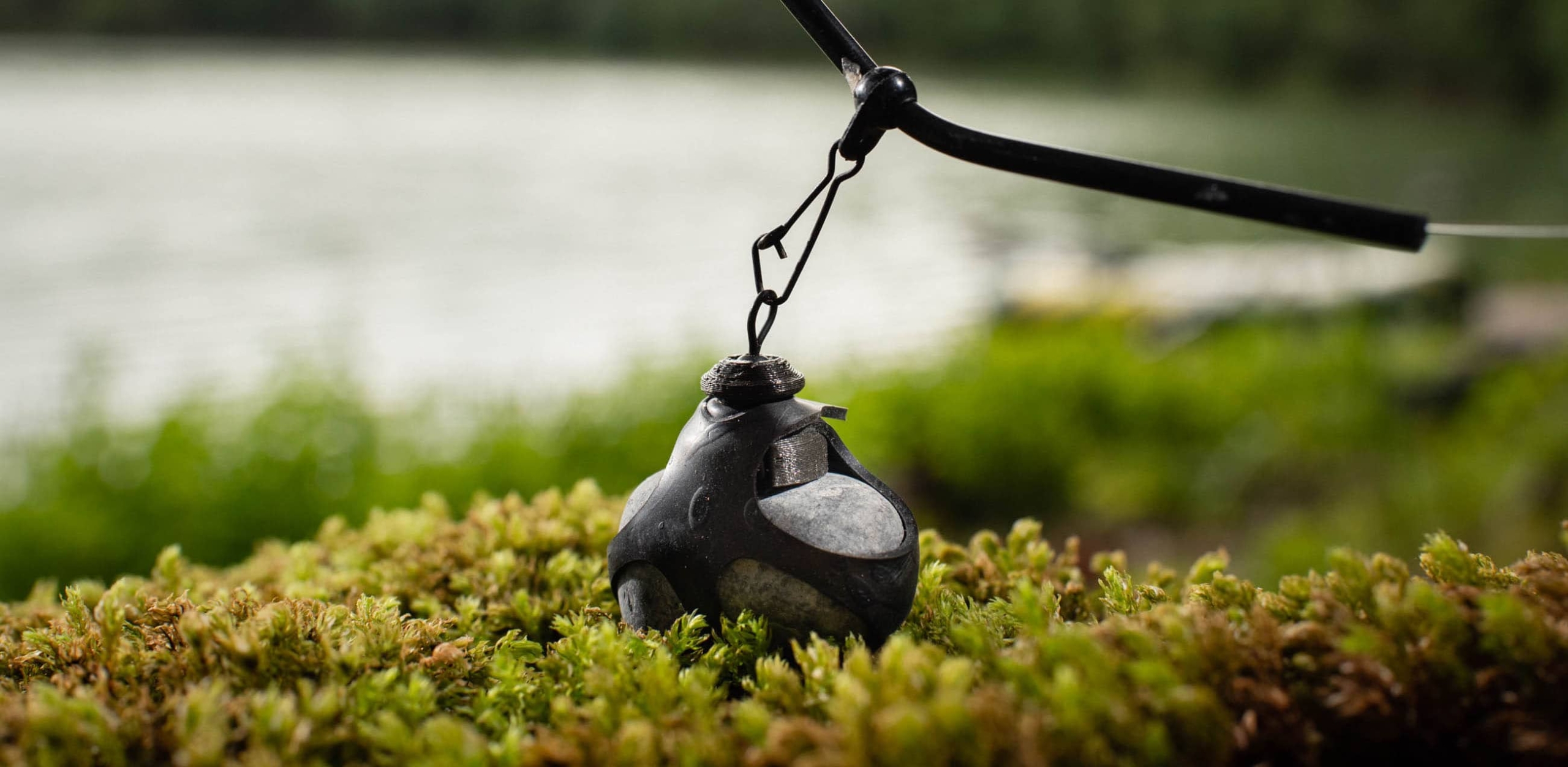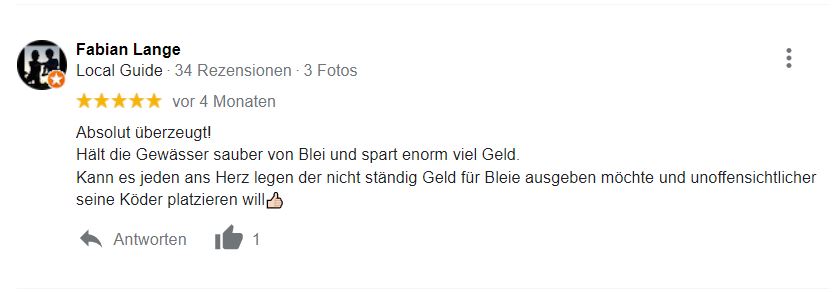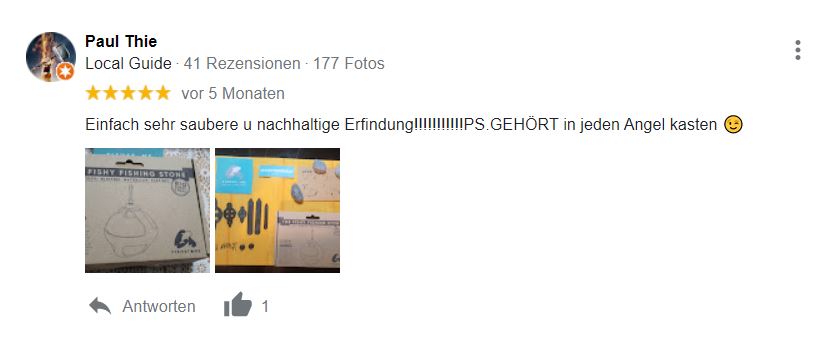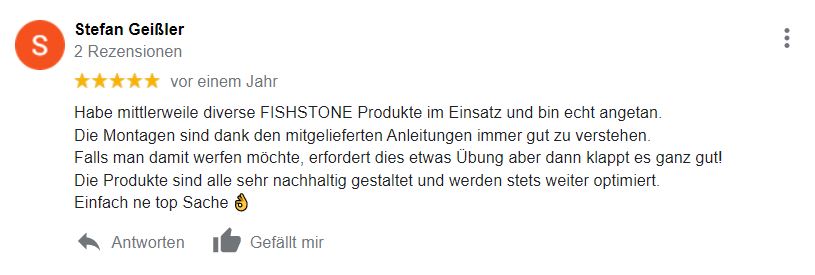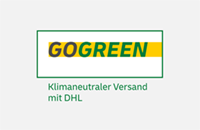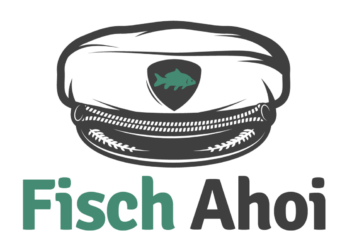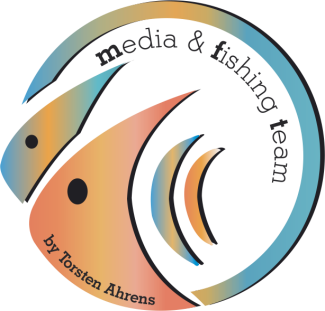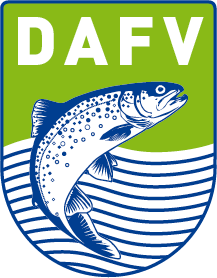What does it actually mean that we anglers use lead as weights?
We would like to say something in advance at this point. Angling has a long tradition with many proven, great techniques, tricks and mounts. Lead has been a fundamental part of angling so far, in the truest sense of the word. We don’t want to paint the devil on the wall or judge anyone – we have fished successfully with lead ourselves for a long time – however, drinking water pipes were also made of lead for a very long time until the danger was recognised.
For us anglers, the health of the fish, the waters and nature as a whole should be of primary importance, as we move directly in it with our passion. From now on, with FISHSTONE‘s products, simple, functional and above all catchy alternatives to fishing with lead exist. So let’s make a difference together in fishing. Our innovations provide a whole, flexible alternative solution to the use of fishing weights.
If you want to know more about the topic, we have compiled some insights from our work for you here.
FACTS AND FIGURES ON LEAD FISHING
Anglers are currently introducing large amounts of lead into angling waters. Denmark is leading the way in documenting how much lead anglers are introducing into angling waters. Denmark provides a detailed study according to which, before the lead ban, 97-170t of lead were introduced annually to Danish waters by anglers. The figures for the individual states vary greatly. For example, the research revealed unconfirmed figures varying from 660t per year in Germany to 1000t in Poland. The total amount of lead added to European waters by anglers per year is between 2000 and 6000 tonnes.
Especially the amount of lead consumed by anglers should not be neglected as a trivial matter, but should be treated responsibly. It calls for a flexible, catching and natural substitute for lead weights in order to protect our waters, our nature and, in the end, our passion.
THE SUBSTANCE LEAD
Lead is a toxic heavy metal and belongs to the group of 33 hazardous priority substances throughout Europe. Lead is a bioaccumulator with a high persistence. In simple terms, this means that the lead particles and oxides continuously accumulate in any form of living being and are not biodegradable in the environment.
EFFECTS OF LEAD IN ANGLING
Lead is generally not very soluble in water. However, there are conditions that favour the dissolution or removal of particles. These include acidic water or other chemical processes. The lead in our angling waters is continuously dissolved by friction, which in this way enters the water, living creatures and the entire food chain. Although fishing lead is sometimes coated with protective layers, this is by no means the case for all products on the market and even the protective layer can wear off under environmental influences and expose open areas of the lead.
The water and microorganisms can thus absorb the lead. These form the basis of the food chain for most other living creatures under water. Thus, the heavy metal gets into the bodies of the fish that we humans eat. However, not only fish, but especially birds and other animals are affected by the toxic properties of lead lost during fishing. For example, until certain lead weight sizes were banned in the UK in 1987, an estimated 4000 swans died each year from lead fishing weight poisoning after accidentally eating them. Water birds ingest small stones to break up their food in their stomachs, not noticing the difference between a lead and a stone as they eat. Lead poisoning thus represented the single largest cause of death of swans in this country. This is just one example of the direct effects of lead from fishing.
Ultimately, the entire food cycle is polluted via the water. The accumulated lead is deposited in our bodies and permanently poisons them, as it does not degrade in the body. In the long run, lead has a harmful effect on water, the local biosphere and ultimately on the entire food chain.
From an ecological point of view, mining with extraction volumes of up to 6000t of lead per year puts an additional burden on the environment. The extraction of the fossil raw material is limited. It requires a great deal of machinery and energy, as do the melting processes and the production of the countless small lead weights. During mining and production, additional burdens on the environment arise, such as the emission of large amounts of CO2 or waste water enriched with heavy metals. Much of the processing to fishing weights takes place under inhumane conditions. People often work in the factories without air filters and are exposed to toxic fumes on a daily basis. Elaborate supply chains transport the heavy weights mostly from Asia to Europe, only to dump them carelessly in the waters here. In order to realise the full consequences of our habit of using lead as fishing weights, it is important to think outside the box. It is not only the entry of the substance into our local waters that is problematic, but all the different processes that take place in the creation of the countless lead weights are part of the responsibility that we must assume to protect our environment.
THE LAWS ON LEAD IN ANGLING
Legislation has also already become aware of the dangerous effect of lead in angling. So far, Denmark is the only country with a comprehensive ban on the import and sale of lead weights for angling. Other states such as Canada have introduced bans for specific weight classes (e.g. lead weights under 50g). Since 2022, angling with lead has been completely banned in Catalonia (Spain). Our neighbours in Austria are also already implementing bans on individual waters and, last but not least, the first bans are also imminent in Germany. In the European context, draft laws for a complete ban on fishing tackle made of lead are already increasingly under discussion and it is only a matter of time before we also legally say goodbye to the toxic heavy metal in angling.
Lead is a discontinued product and it is only a matter of time before it is banned. Prepare yourselves now and change over!
According to the Surface Water Ordinance, there was already a legal directive that priority substances (including lead) may no longer be added to German waters by 2021. Considering the quantities consumed annually, it is only a matter of time until legislation regulates the input of lead caused by anglers, just in case practical alternatives exist. For this reason, we invite you to become part of the change now. Start switching to FISHSTONE‘s alternatives now and don’t stay in a dying past – become part of the future!

